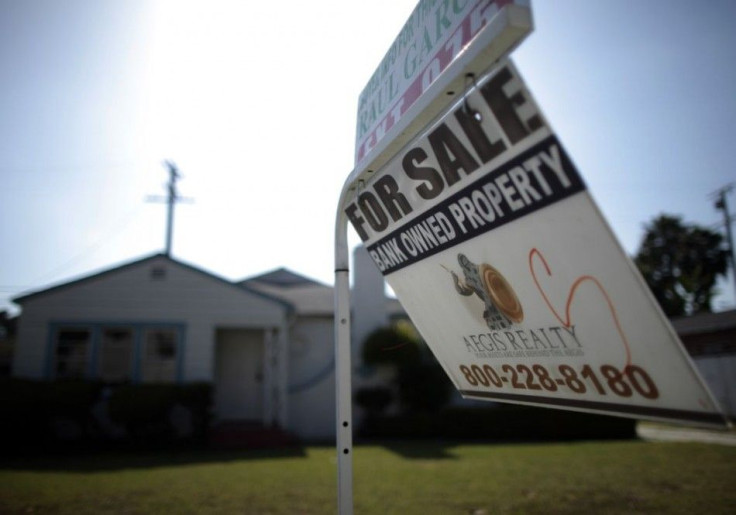The Real Truth In Lending: Banks Need To Understand Applicants Better, Not Just Reject Them

Massachusetts' Boston Community Capital has taken a rather novel approach to lending these days, focusing not only on the bottom line of the application but also on working with the applicant to make sure there's a fundamental understanding of the borrower's financial responsibilities and place in the community.
Under its Stabilizing Urban Neighborhoods (SUN) program, the company is saving residents from foreclosures by buying their mortgages from the loan provider and refinancing the loan over a much longer period at a slightly higher interest rate, allowing the family to save about 40 percent and maintain a better standard of living. Boston Community Capital was able to turn a profit and ensure that communities are not torn apart.
For many, going into foreclosure was the direct result of the financial crisis, a job loss or a subprime mortgage they couldn’t afford. So it’s more important than ever to get the mortgage you need.
“I actually think a good mortgage has to be affordable,” said Boston Community Capital CEO Elyse Cherry. “That is, a mortgage that can be paid in a sustainable fashion. And it’s important for another reason, too, which is that homeowners are good effective members of their community, and to help maintain stable communities they really need to truly function as a homeowner, which means in addition to being able to pay their mortgage, they need to be able to take all of the actions necessary to maintain the value of the asset.”
According to figures from the Federal Financial Institutions Examination Council, most buyers choose to go with the 30-year fixed mortgage because it’s affordable, stable and flexible. It has lower monthly payments than a 15-year mortgage, which is the most important aspect for first-time buyers who are looking for affordability in the early years.
Although last year the 15-year mortgage was at its lowest use in history, at just 2.5 percent, three-quarters of a percentage point below the 30-year alternative, more than 85 percent of the home loan market was the 30-year option. Despite being a good option, people were still defaulting and millions have been put out of their homes since 2008.
Cherry says that's because people often don’t remember that they're not just buying a house but also taking on a responsibility that includes maintenance and upkeep. More than that, she said, a mortgage can negatively affect your life.
“You may not be able to go out and get a car loan because your credit's shot because your mortgage is bad; you can’t send your kids to college necessarily because you can’t take out an education loan; sometimes you’ll have trouble renting a house because landlords don’t want people with lousy credit. And sometimes you can’t even get a job because employers now are doing credit checks and saying, 'You’re not responsible because you’re not even paying your mortgage.' So for all of those reasons it’s important to have a good mortgage that’s right for you.”
Banks offer few options for very-low-income families and as a result more potential borrows than ever before are being rejected. Perhaps this is a sign that the subprime mess is over.
“I think what’s required is not necessarily that we reject people for mortgages but that we assure that the mortgage fits the income and cost profile of the people to whom the loans are being made. It’s absolutely true: Not everyone should be a homeowner,” said Cherry.
Boston Community Capital has about 450 borrowers on its books, and Cherry says they all pay on time because they’ve been carefully underwritten and assurances determined that the mortgage correlates with the true value of the home.
“The question isn’t so much should you or shouldn’t you reject; the question is more, what’s a sensible set of underwriting criteria?” she said.
Perhaps because of poor credit, banks are now rejecting more people than ever for home loans.
Here's a list of the biggest mortgage lenders and how many potential home buyers they rejected in 2012.
1. Wells Fargo & Co. (NYSE:WFC) 84,687 rejections from 399,911 applications (21.2 percent)
2. JPMorgan Chase & Co. (NYSE:JPM) 26,894 rejections from 80,036 applications (33.6 percent)
3. Bank Of America Corp. (NYSE:BAC) 19,547 rejections from 76,355 applications (25.6 percent)
4. U.S. Bancorp (NYSE:USB) 9,014 rejections from 52,425 applications (17.2 percent)
5. BB&T Corporation (NYSE:BBT) 6,855 rejections from 43,840 applications (15.6 percent)
6. Flagstar Bancorp Inc. (NYSE:FBC) 6,853 rejections from 52,030 applications (13.2 percent)
7. Citigroup Inc. (NYSE:C) 6,442 rejections from 44,945 applications (14.3 percent)
8. Quicken Loans 4,331 rejections from 25,038 applications (17.3 percent)
9. SunTrust Banks Inc. (NYSE:STI) 3,831 rejections from 34,749 applications (11 percent)
10. PHH Corporation (NYSE:PHH) 1,967 rejections from 17,034 applications (11.5 percent)
Source of data: Federal Financial Institutions Examination Council
© Copyright IBTimes 2024. All rights reserved.





















